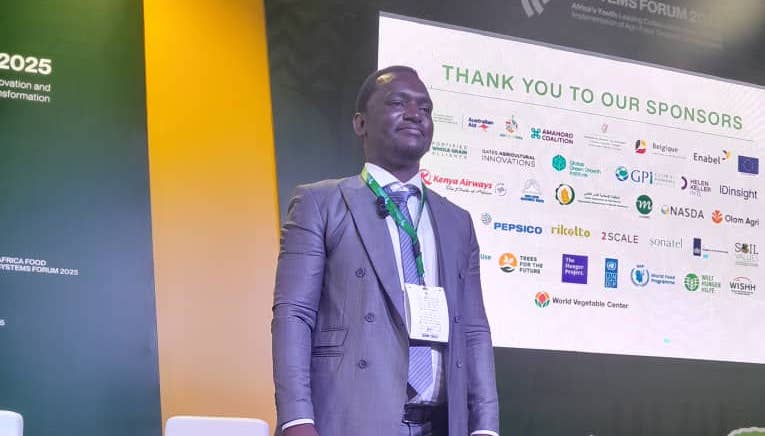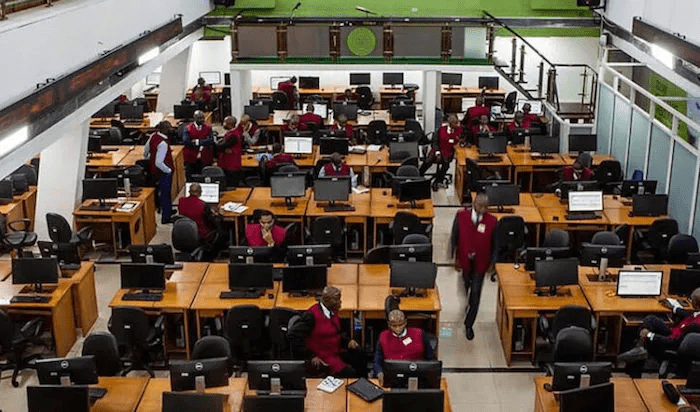For decades, Nigeria’s energy sector has been described as a paradox, with abundant resources but constrained by the needed infrastructure to spur growth. Therefore, the country has struggled to translate its vast gas wealth into reliable energy for industries and households. Today, that narrative is beginning to shift. At the centre of this transformation is the Midstream and Downstream Gas Infrastructure Fund (MDGIF), a financing mechanism created under the Petroleum Industry Act (PIA) to unlock investment in critical gas projects, writes Emmanuel Addeh.
An Inevitable Move
For years, everybody had talked about the problem of paucity of gas infrastructure in Nigeria, without necessarily moving to solve it. The MDGIF was therefore established under the PIA 2021 to tackle one of Nigeria’s most persistent challenges; its weak gas infrastructure.
The MDGIF serves as a financing vehicle to drive investments into pipelines, processing plants, storage facilities and distribution networks that can unlock the country’s vast natural gas reserves.
By providing equity participation in projects, MDGIF reduces risks for private investors while ensuring that critical infrastructure is delivered. In recent months, the fund has committed several billions of naira to indigenous gas companies and signed joint venture agreements to execute gas processing plants, CNG refuelling stations and LPG storage facilities.
Described as a catalyst for Nigeria’s “Decade of Gas,” with a dual mission to power industries and households while advancing the transition to cleaner, cheaper energy, at its core, the MDGIF is positioning gas as both the engine of economic growth and the bridge fuel for Nigeria’s long-term energy transition.
To drive the Fund, in January 2024, the federal government announced the appointment of Oluwole Adama as its Executive Secretary, and thereafter inaugurated the MDGIF’s governing council in March 2024, with a clear mandate to attract the needed gas investments to the sector.
Since then, the leadership team has provided a clear direction to ensure that the Fund’s interventions align with national objectives for energy transition, industrial growth and energy security.
From the start, the initiative was designed to be more than a high-level policy instrument. The federal government’s directive was clear: that its success would be measured by how directly it impacts Nigerians.
In a country where millions still rely on firewood and kerosene, the ability of the fund to drive down prices of cleaner alternatives represents a potential social as well as industrial breakthrough.
With limited processing plants, poor storage and distribution systems, and few refuelling stations, the full utilisation of gas as a cleaner and more affordable energy source, has in the past been constrained. This shortfall has increased dependence on petroleum products, leading to higher costs for homes and businesses thereby slowing the transition to sustainable energy alternatives.
Scaling Up Ambition
The first major demonstration of the fund’s strategy came in October 2024 when the government released N122 billion to six indigenous gas infrastructure companies, reflecting President Bola Tinubu’s determination to foster productive business relationships.
The selection of the firms, the government explained, was based on strict criteria set out in the PIA and the MDGIF’s investment policy. This move sent a strong signal to the private sector. By offering equity participation rather than grants or loans, MDGIF positioned itself as a partner rather than merely a financier.
This approach has already begun to reduce the perception of risk that has long deterred private capital from investing heavily in Nigeria’s energy sector.
Within months, the fund expanded its reach. In May 2025, it signed joint venture agreements with nine more indigenous companies to deliver 10 projects across the country. These included six gas-processing plants, two of them designed to capture flare gas alongside three CNG refuelling stations and a bulk LPG storage facility. Together, these projects are expected to deepen domestic supply and extend cleaner fuels to new parts of Nigeria.
From Funding to Sustained Action
The fund’s Executive Director, Adama, has repeatedly stressed that financing is only the beginning. “Consistent policy support and incentives will pave the way for increased private investment, enhancing our domestic gas value chain… Nigeria is sitting on gas. We must position our gas as the energy transition fuel,” he said during one event.
The fund’s vision goes beyond industrial use. One of its recent interventions, the CNG project, directly targets transportation by introducing CNG-powered buses and tricycles across 20 universities, along with conversion and refuelling facilities. For students and commuters, this promises cleaner, cheaper mobility. For the government, it offers a chance to reduce dependence on costly petrol subsidies while easing pressure on household incomes.
This initiative is emblematic of the broader “Decade of Gas” campaign, a government drive to use Nigeria’s vast gas reserves as both a bridge to cleaner energy and a foundation for industrial expansion. MDGIF’s interventions bring that vision to life by placing infrastructure where it matters most: in the pipelines, plants, and stations that link gas supply to everyday consumption.
Tangible Results
To date, 16 companies have benefited from MDGIF’s support; these include: FEMADEC Energy Limited, Topline Limited, Asiko Energy Holdings Limited, Ibile Oil and Gas Corporation, Rolling Energy Limited, Nsik Oil and Gas Limited, Ant Energy Limited, Amari Energy Resources Limited, Sub-sea 9 Gas Limited, Deemah Integrated Services Limited, LNG Arete Limited, VTT LNG West Africa Limited, Geospectra Energy Limited, Waterdance International Concepts Limited, WishnefiskyGlobal Limited and Ssonic Petroleum Limited.
Significant progress is already visible across the projects being implemented by these companies. FEMADEC Energy Limited is establishing CNG refuelling stations in 20 universities nationwide. So far, 5 stations have been commissioned at Obafemi Awolowo University, Osun State, Yakubu Gowon University,Abuja, Ahmadu Bello University, Zaria, Federal University of Technology, Owerri, and the University of Uyo in Akwa Ibom State, with additional stations expected to come on stream by December 2025.
Asiko Energy Holdings Limited is constructing a 5,000 MT LPG/Propane and 13,200MT LNG Terminal in Ijora, Lagos, a project that is at varying stages of completion and is scheduled for commissioning in the third quarter of 2026.
Topline Limited is developing a 5MMSCFD mini-LNG plant at Oghara, Delta State to process natural gas and produce clean, usable LNG for industrial and household use, thereby supporting Nigeria’s energy strategy for economic growth. It is expected to be commissioned by the last quarter, 2025.
Besides, Ibile Oil and Gas Corporation, which is being supported to build 15 CNG refuelling stations, has already achieved 60 per cent completion and is expected to be commissioned by the fourth quarter of 2025.
Similarly, Rolling Energy Limited, tasked with building LCNG and CNG refuelling stations at 10 locations across Abuja, Kano, Kaduna and Borno States, is at various stages of equipment fabrication and installation, with commissioning scheduled for the first quarter, 2026.
In the same vein, Nsik Oil and Gas Limited has reached 45 per cent completion of its CNG refuelling project, with commissioning targeted for first quarter 2026 as well. Several other vital projects are also underway with support from the Fund.
Short Delivery Timelines
Infrastructure projects are inherently complex and typically take considerable time to deliver. What appears on site as construction is the end product of months, often years of planning, design and preparatory work carried out by multiple specialists.
Key stages in that process include procurement and contracting, regulatory approvals, detailed engineering and technical design, the mobilisation of finance, and coordination among government agencies, contractors and local communities.
Each stage must be completed thoroughly to ensure safety, value for money and long-term operability, because delays in any one area can push back overall delivery timelines. For these reasons, it is common for infrastructure schemes to require several years from first concept to commissioning, with the economic and social benefits gradually becoming evident only once systems are fully operational.
The MDGIF is proving to be an exception in terms of early delivery. The Fund launched its first six projects in October 2024, and within a short period several schemes have already been commissioned. Additional projects are slated to become operational in fourth quarter 2025 and first quarter 2026. This rapid progress highlights the MDGIF’s focused implementation approach and its commitment to turning investment into tangible benefits for Nigerians
The impact of the Fund’s interventions is already becoming clear; its projects are expanding access to affordable and cleaner energy, lowering transportation costs through CNG adoption, strengthening energy security by reducing reliance on imports, stimulating industrial growth, and creating thousands of direct and indirect jobs.
The impact of MDGIF’s interventions is already tangible and set to grow as the Fund scales up delivery across the country. By accelerating the rollout of CNG, LNG and LPG infrastructure, the Fund is helping to reduce energy costs, enhance national energy security, stimulate industrial development and generate employment opportunities across the value chain. MDGIF will continue to prioritise transparent project delivery and robust governance to ensure that investments translate into measurable socioeconomic benefits for communities nationwide.
Adama, Executive Director, aptly puts it: “Our mandate is to turn potential into prosperity. We are focused on delivering high-quality gas infrastructure that supports cleaner energy use, drives industrial growth and improves livelihoods. We will sustain rigorous oversight, timely reporting and active engagement with partners so that every project delivers value for money and lasting impact.”
The Future
The Midstream and Downstream Gas Infrastructure Fund has quickly evolved from a legislative concept to a practical driver of change in Nigeria’s energy sector. Its impact is already visible in the partnerships it has forged, the billions committed to projects, and the confidence it is building among investors. More importantly, it offers Nigerians a glimpse of an energy future that is affordable, reliable, and cleaner.
In the end, the Fund is proving to be more than just a financing tool; it is becoming a cornerstone of Nigeria’s energy transformation. By directing resources into these plants, and storage facilities, it is addressing decades of underinvestment that have kept the country from fully harnessing its vast gas reserves.
The projects already underway signal a new era in which gas is not only a driver of industrial growth but also a cleaner, more affordable alternative for households and transport. For a country striving to diversify its economy and transition to cleaner fuels, MDGIF represents a promise, a promise of prosperity through gas.
The post MDGIF: Powering Nigeria’s Renewed Gas Infrastructure Drive appeared first on THISDAYLIVE.


